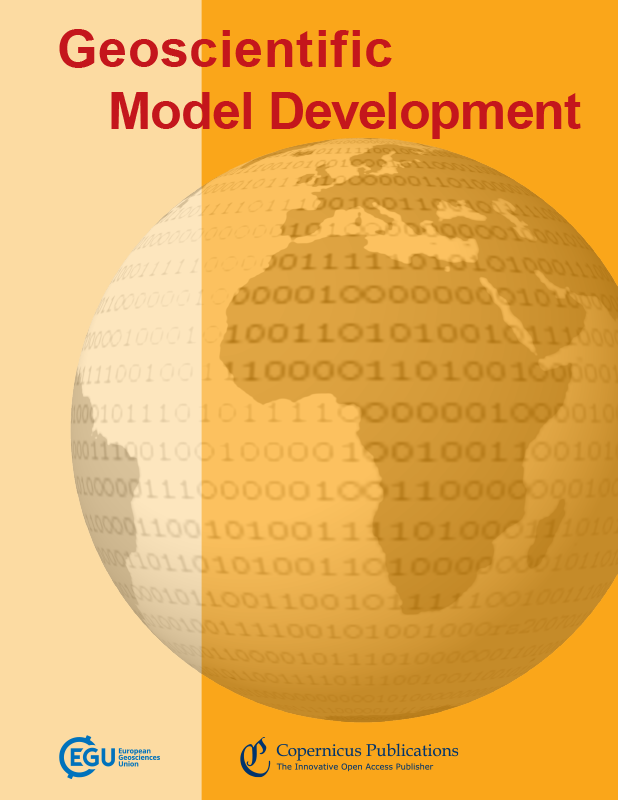Use of threshold parameter variation for tropical cyclone tracking
IF 4.9
3区 地球科学
Q1 GEOSCIENCES, MULTIDISCIPLINARY
引用次数: 0
Abstract
Abstract. Assessing the capacity of numerical models to produce viable tropical cyclones, as well as assessing the climatological behavior of simulated tropical cyclones, requires an objective tracking method. These make use of parameter thresholds to determine whether a detected feature, such as a vorticity maximum or a warm core, is strong enough to indicate a tropical cyclone. The choice of parameter thresholds is generally subjective. This study proposes and assesses the parallel use of many threshold parameter combinations, combining a number of weaker and stronger values. The tracking algorithm succeeds in tracking tropical cyclones within the model data, beginning at their aggregation stage or shortly thereafter and ending when they interact strongly with extratropical flow and transition into extratropical cyclones or when their warm core decays. The sensitivity of accumulated cyclone energy to tracking errors is assessed. Tracking errors include the faulty initial detection and termination of valid tropical cyclones and systems falsely identified as tropical cyclones. They are found to not significantly impact the accumulated cyclone energy. Thus, the tracking algorithm produces an adequate estimate of the accumulated cyclone energy within the underlying data.阈值参数变化在热带气旋跟踪中的应用
摘要评估数值模型产生可行热带气旋的能力,以及评估模拟热带气旋的气候行为,都需要一种客观的跟踪方法。这些利用参数阈值来确定探测到的特征,如涡度最大值或暖心,是否足够强,足以表明热带气旋。参数阈值的选择通常是主观的。本研究提出并评估了许多阈值参数组合的并行使用,这些组合结合了一些较弱和较强的值。跟踪算法成功地在模型数据中跟踪了热带气旋,从其聚集阶段或之后不久开始,到它们与温带气流强烈相互作用并转变为温带气旋或其暖心衰变时结束。评估了累积气旋能量对跟踪误差的敏感性。跟踪错误包括错误的初始检测和终止有效的热带气旋以及被错误识别为热带气旋的系统。发现它们对累积的气旋能量没有显著影响。因此,跟踪算法对基础数据内的累积气旋能量产生了充分的估计。
本文章由计算机程序翻译,如有差异,请以英文原文为准。
求助全文
约1分钟内获得全文
求助全文
来源期刊

Geoscientific Model Development
GEOSCIENCES, MULTIDISCIPLINARY-
CiteScore
8.60
自引率
9.80%
发文量
352
审稿时长
6-12 weeks
期刊介绍:
Geoscientific Model Development (GMD) is an international scientific journal dedicated to the publication and public discussion of the description, development, and evaluation of numerical models of the Earth system and its components. The following manuscript types can be considered for peer-reviewed publication:
* geoscientific model descriptions, from statistical models to box models to GCMs;
* development and technical papers, describing developments such as new parameterizations or technical aspects of running models such as the reproducibility of results;
* new methods for assessment of models, including work on developing new metrics for assessing model performance and novel ways of comparing model results with observational data;
* papers describing new standard experiments for assessing model performance or novel ways of comparing model results with observational data;
* model experiment descriptions, including experimental details and project protocols;
* full evaluations of previously published models.
 求助内容:
求助内容: 应助结果提醒方式:
应助结果提醒方式:


